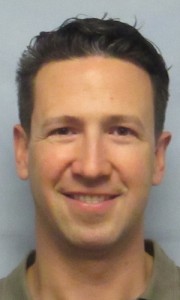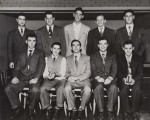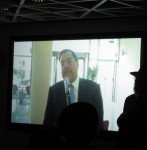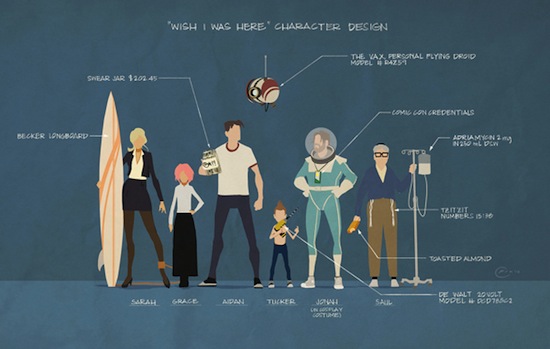Bonnie Nish also started Summer Dreams. (photo by Robin Susanto)
“I have a passion for writing poetry,” said Bonnie Nish, a local poet and an executive director of Pandora’s Collective. “But I also want to build a community of writers. Writing is an isolated occupation. Building a community around it brings us together. When I’m with people, working on a Pandora’s event or the Summer Dreams festival, I get as much as I give.”
Nish refused to define herself by one word or profession. “I’m many things,” she said. Nish has a bachelor’s degree in English, a master’s in art education and is completing her PhD in expressive arts therapy.
“Expressive arts therapy uses all of the arts – from writing to visual arts to music – to unlock people’s creativity and help with conflict resolution,” she explained. “It engages the part of our brains we don’t usually use. I’m in the process of setting up a practice and I’m also trying to organize a series of workshops.” Among her clients are individuals (children and adults), corporations trying to build their teams and couples in need of counseling.
Helping people achieve their potential through arts is her ultimate goal in life. “I always wanted to be a writer and a teacher,” she said. Both her wishes came true. She has been a poetry workshop instructor since 1996, first in California and later here, in Vancouver, sharing her knowledge and enthusiasm for poetry with adults and teens.
Since 2006, she also has worked for the Vancouver School Board as an education assistant for elementary school children with disabilities: Down syndrome and autism. “I’m drawn to children who need extra help,” she said. “And I like working one on one. It allows me to build a relationship.”
Her other work stems from the same sources: her need to give, to mentor, to unite writers. “When I came to Vancouver in 2002, I joined a writers’ group. Later, I set up my own group. My kids were still young, so we met weekly in my house and had a writing session on a ‘prompt,’ a different prompt every week. We wrote around my kitchen table.”
It wasn’t enough. Nish and her poetic cohorts wanted to take their poetry to the wider world, so they founded Pandora’s Collective, a nonprofit organization that promotes poetry and literature in Vancouver.
“What began over 10 years ago as a small writing group sitting around my kitchen table every week has evolved into a whole gamut of weekly, monthly and yearly events and readings, which reaches hundreds of people,” she said. “We feature poetry contests for all ages, with entries coming from as far away as Italy and Egypt. We award a scholarship each summer to enable a teen to attend the Vancouver Public Library’s Summer Book Camp. With Pandora’s Collective, I have facilitated workshops in alcohol and drug rehabilitation centres, at Covenant House, the Gathering Place and throughout the Lower Mainland in schools.”
“I’ll strive as long as we’re doing this to keep Pandora’s an inclusive place for all writers, where they can find community, where their words are taken seriously and they’re able to continue to find their voice.”
Pandora’s provides a safe space for all writers to be heard. “This has personal importance to me,” said Nish. “I understand the need to be heard. I’ll strive as long as we’re doing this to keep Pandora’s an inclusive place for all writers, where they can find community, where their words are taken seriously and they’re able to continue to find their voice.”
With Pandora’s flying high, Nish turned her focus to another project: she started the annual Summer Dreams literary festival in 2004.
“I noticed that lots of people did lots of events in Vancouver,” she said. “I thought it was a good idea to bring them all together, to give them more exposure … to showcase to the public what we do on an ongoing basis.”
By 2013, its 10th year, the festival had grown into a multi-day event, comprised of 27 literary groups with more than 100 performers. Unfortunately, for 2014, the festival is taking a hiatus, as its founder and heart, Nish, has a health problem. In 2012, she suffered a severe concussion; in 2013, a second one. “My short-term memory was affected,” she said. “I couldn’t read, couldn’t write, couldn’t find words.”
While gradually getting better, Nish has found a way to turn her pain into an opportunity for other writers. She is undertaking the publication of an anthology of stories – essays, poems or memoirs – about concussion and its effects. She already has submissions from more than two dozen writers. Publication is scheduled for 2015.
“Some days, when I am tired, I wonder why I continue. The answer, when I really take the time to think about it, is very clear. It is because of this great community … of which I have become a part. I am so thankful for this.”
“I’m doing all of this because it is my passion,” she says on her website. “… It is the people who email me to say that they feel connected because of my e-newsletter. It is the girl who stopped me on the street to tell me that she had done our workshop in a drug rehab and was still straight and still writing. It is all the volunteers who come out year after year to keep the festival running. It is the poets, established and beginners…. They are what keep this whole thing alive. Some days, when I am tired, I wonder why I continue. The answer, when I really take the time to think about it, is very clear. It is because of this great community … of which I have become a part. I am so thankful for this.”
To learn more, visit Pandora’s Collective’s website, pandorascollective.com.
Olga Livshin is a Vancouver freelance writer. She can be reached at [email protected].
















